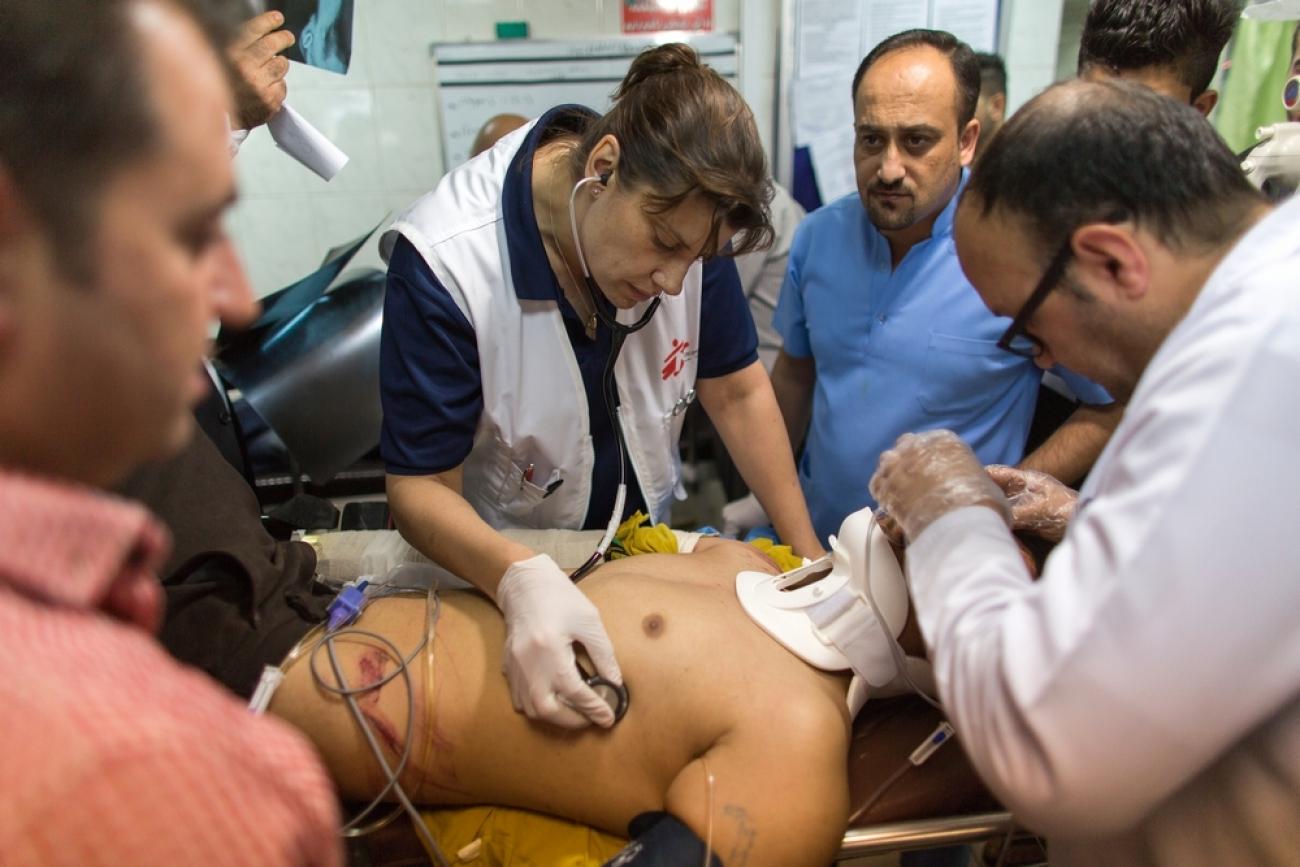
Profile
DIPLOMA
- doctorate in medicine with significant experience in the emergency department
- current matriculation in Medical Council/Board
AVAILABILITY
- 3 to 6 months
LANGUAGES
- intermediate English is required because a significant portion of our missions are English-speaking. The minimum level of English required is B1 on the CECREL grid
SKILLS
- good clinical skills
- strong interest in coaching, training and skills transfer
- able to work in multicultural and multidisciplinary teams in contexts that are often complex and isolated, requiring strict respect for the local culture and security rules in force
Several MSF missions specifically need emergency doctors. The emergency doctors are activity managers responsible for planning, organizing and evaluating the emergency activities. They supervise and provide support to the emergency doctors and midwives. They ensure good collaboration with other services and report on the activity of their service. MSF's emergency services have continued to grow since 2011. We are currently focused on developing emergency structures. Because of its versatility and flexibility, emergency medicine is used more and more in war contexts as well as long-term projects.
In 2021 :
• MSF managed 14 Emergency Structures and one emergency/ambulance call service
• There were about 20 departures of emergency physicians in the field, half of them in COVID-19 positions
More than 40% of the patients in all of our EDs come for trauma. We intervene in areas where there is a general lack of care. It affects both traumatological and chronic medical pathologies.
The rate of patients hospitalized after being seen in our EDs is close to 30%, without much difference compared to previous years, and corresponds to what is expected from EDs that receive medical-surgical patients of all ages and to the rate of EDs in high-income countries.
Thanks to a transversal work between the sections, simulation training techniques have been able to gain importance in our fields, especially in the domain of mass casualty. Like the Point Of Care Ultra Sound (POCUS) already present in the field, simulation training is anchored in a modernization of our tools, both clinical and educational.
ACTIVITIES:
They have "On Call" duty to ensure 24-hour service.
They provide medical care to severely ill / injured patients in conflict, post-conflict or post-disaster areas, etc.
They contribute to the quality of care in the emergency room in the hospital according to the MSF protocols and guidelines. They take part in the emergency response (eg. influx of wounded, epidemics ...).
Clinical:
- Ensures daily consultations in the emergency room, resuscitation or dressing room.
- Ensures and monitors the good functioning of the triage.
- Ensures that doctors administer prescriptions according to MSF protocols and guidelines.
- Ensures that emergency patient's files are complete, and that medical recommendations are clearly communicated to nurses.
- Uses the emergency resources (radiology and blood bank) rationally.
- Identifies appropriate patients to refer to other medical facilities.
Data collection:
- Ensures the collection of medical data.
- Participates in the drafting and analysis of morbidity-mortality reports with the Medical Team Leader and / or the hospital director or the project coordinator.
Collaboration with other services:
- Participates in medical meetings.
- Works in close collaboration with the intensive care unit, the operating theater and the delivery room in case of emergency.
- Gives support to other services if needed.
Coaching/training:
- Provides supervision and supports ongoing training of the team based on MSF guidelines and protocols.
- Support existing training programs like Basic First Aid
They ensure the respect of medical confidentiality in all areas of their activity.
They exercise vigilance and inform their manager in case of medical error.